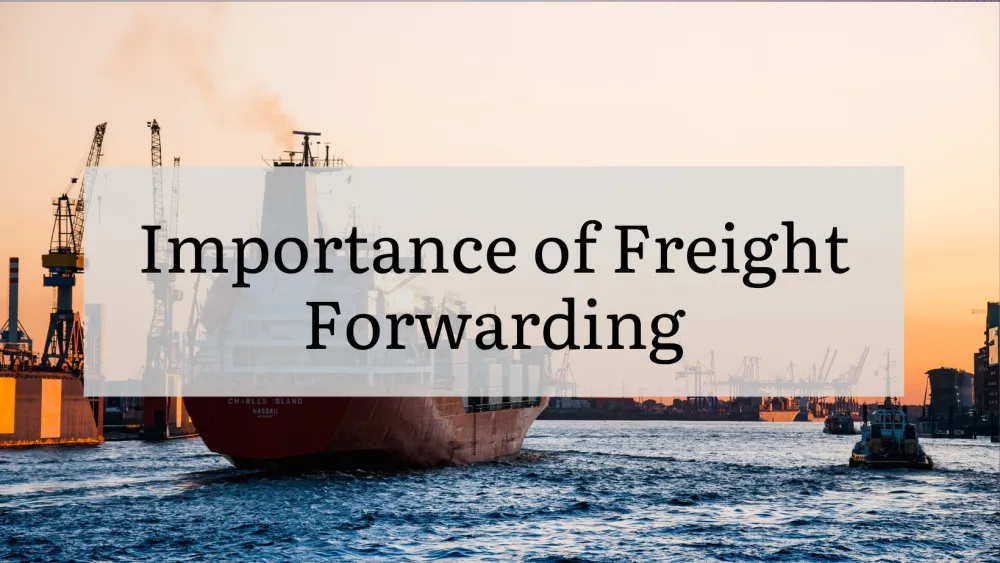
The Role of Freight Forwarders in International Trade
In today’s interconnected world, where goods are constantly traversing borders to meet global demands, the role of freight forwarders has become indispensable in facilitating the complex dance of international trade. These unsung heroes of the logistics industry play a pivotal role in ensuring that products seamlessly navigate the intricate web of global commerce, making international transactions smoother, more efficient, and more reliable.
Freight forwarders in Iran are essential in managing the complexities of international trade, making global transactions more efficient and reliable.
Understanding the Freight Forwarder's Role
At its core, a freight forwarder acts as a bridge between businesses looking to ship their goods and the myriad complexities of international shipping. Their role goes beyond the physical movement of cargo; they are orchestrators of a symphony of logistics operations, each contributing to the successful delivery of products across borders.
Navigating Regulations and Documentation
International trade is fraught with regulations, customs requirements, and extensive paperwork. Freight forwarders possess a deep understanding of these intricate details, ensuring that shipments comply with the diverse range of legal and regulatory standards across different countries. From import and export documentation to customs declarations, they navigate the bureaucratic landscape with finesse, saving businesses the headache of dealing with these complexities.
Efficient Route Planning
Choosing the optimal shipping route is a crucial aspect of international trade. Freight forwarders leverage their expertise and industry insights to identify the most efficient routes that balance transit times, costs, and potential hurdles. This meticulous planning ensures that goods reach their destinations in a timely and cost-effective manner.
Coordinating and Booking
Freight forwarders juggle various components of the shipping process, from booking cargo space on ships or planes to coordinating transportation services. They have a network of relationships with carriers, allowing them to negotiate favorable terms and ensure a seamless flow of goods from origin to destination.
Cargo Tracking and Visibility
The modern era demands transparency and real-time updates. Freight forwarders employ advanced tracking technologies that provide businesses with real-time visibility into the status and location of their shipments. This not only instills confidence but also allows for effective supply chain management and communication with customers.
Risk Management
In the realm of international trade, uncertainties are a given. Freight forwarders are well-equipped to handle unforeseen challenges that could disrupt the shipping process, such as adverse weather conditions, port strikes, or customs issues. Their ability to mitigate risks and devise contingency plans keeps shipments on track and minimizes potential disruptions.
Customs Clearance Expertise
Smooth customs clearance is a crucial aspect of international shipping. Freight forwarders work closely with customs authorities to ensure that all required documentation is in order, minimizing delays and ensuring a hassle-free entry of goods into foreign markets.
Global Network and Expertise
Freight forwarders operate within a vast global network of partners, agents, carriers, and service providers. This network provides them with unparalleled access to resources and information, allowing businesses to tap into new markets and navigate unfamiliar territories with ease.
Value Beyond Logistics
The role of freight forwarders extends far beyond the mechanical aspects of shipping. They add substantial value to businesses and the overall international trade ecosystem:
Time and Cost Efficiency: By optimizing routes, managing documentation, and handling logistics intricacies, freight forwarders save businesses both time and money.
Risk Mitigation: Their expertise in risk assessment and mitigation strategies ensures that businesses are prepared for any challenges that may arise during transit.
Market Expansion: Freight forwarders open doors to new markets by providing insights into local regulations, cultural nuances, and business practices.
Focus on Core Competencies: By outsourcing the complexities of logistics to freight forwarders, businesses can focus on what they do best: producing high-quality products and driving growth.
In a rapidly evolving global trade landscape, freight forwarders stand as pillars of expertise, helping businesses navigate the challenges of international shipping while enabling growth, expansion, and success in the global marketplace. Their ability to seamlessly orchestrate the movement of goods across borders is a testament to their invaluable role in the world of international trade.